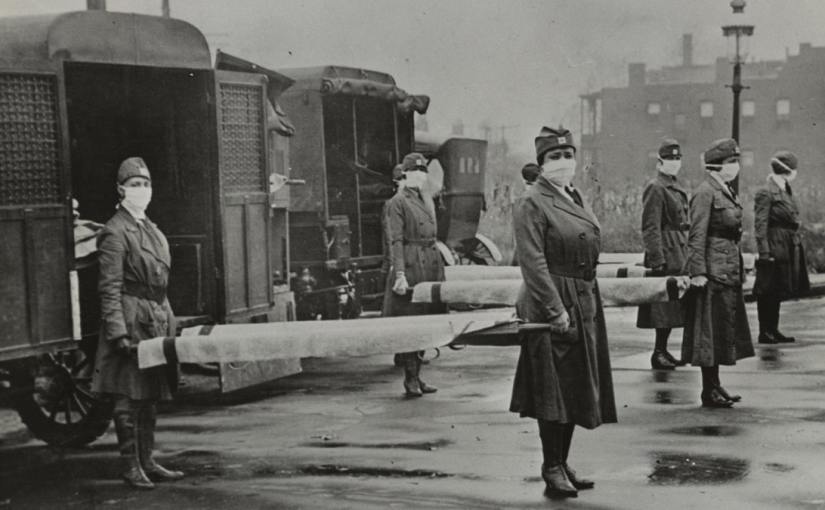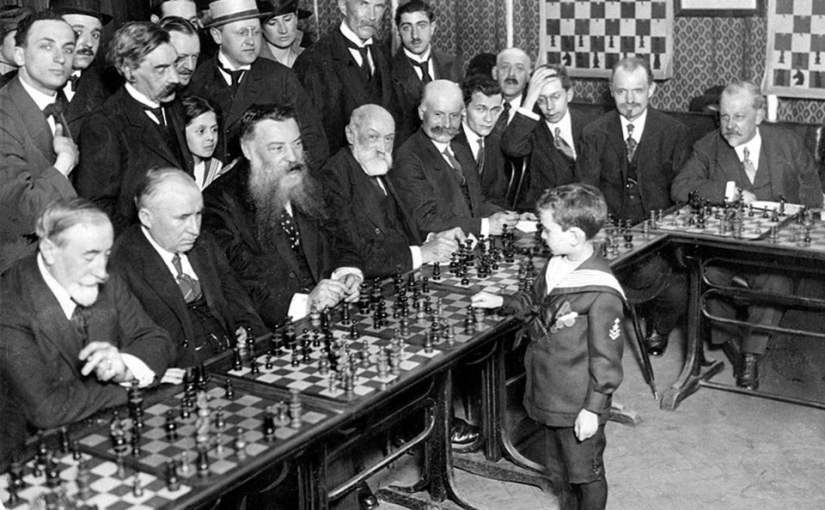
A clergyman prays to ward off the Black Death, Circa. 1350
History is riddled with pandemics. Among the building of the Pyramids, the Renaissance, and the Crusades are the Spanish Flu, Smallpox, and the Plague. And as mighty as humans think we are, we never are prepared. Viruses are unpredictable and various – they come, as the Coronavirus has, at random periods and with frightening speed. They send nations into panic and economies into ruin. Right now, it seems we’re living history. But how will our history be told? How will the Coronavirus be written about in the history textbooks of future generations?
In the information age, history is much broader and detailed than it could have ever been. With the advent of the internet, through video, texts, emails, articles, etc, everything that happens is set in stone. The right to be forgotten, whether we like it or not, simply doesn’t exist. And although it’s of no question that everything happening right now is recorded, it is impossible to consume absolutely all of it. No matter how life-changing and devastating it may be, people in the future will have to perceive the Coronavirus in mere summary.
Most of what we learn of history is synopsis. Napoleon marched through Russia, Brutus killed Caesar, Columbus brought Smallpox to the Americas. Of course, for the people involved, these circumstances were of massive and unfathomable consequence. Napoleon’s conquests spurred widespread European political discussion and sparked fear for many regular households; not to mention the hundreds of thousands of young men stripped from their livelihoods to fight in the ensuing conflict. Caesar’s death led to a multitude of bloody civil wars and the end of the Roman Republic, killing and displacing many innocent civilians. But mention of these details in history books is scarce, if existent. Although the coronavirus is bitingly real and terrifying now, it is unlikely that it will occupy much space in the culture or discussion of future generations.

Napoleon begins his advance through Russia, Circa. 1814
And that’s an unfortunate fact. Because the Coronavirus pandemic is an instance which serves as damning evidence to the phrase “the only thing we learn from history is that we learn nothing from history”. Pandemics are unpredictable, yes. The Spanish Flu killed tens of millions worldwide, the Broad Street Cholera outbreak ravaged the metropolitan center of London, and the Black Death took the lives of 1/3rd of Europeans, only to be ended with the invention of quarantine. Viruses evolve – it appears impossible to ever be prepared for such a sudden and mystifying event as a pandemic. But in the age of modern medicine and ultra-preparedness, the global reaction to Coronavirus is woeful.
The world economy has tanked, supermarket shelves are barren and restaurants are closed. Even in medically superlative nations like the United States, preventative measures have been limited to the mere suggestion of quarantine and basic hygiene, a suggestion which came too late to stop the disease from spreading across the country. Even worse, reliable information about the virus is difficult to come by. President Trump is (for the first time in many news cycles) stumbling and indecisive, often contradicting the explanations of Dr. Anthony Fauci – America’s top expert on infectious disease. Chinese media is spreading dangerously anti-foreign rhetoric to shift any blame away from itself, Americans are panicking and countries, hell even states, can’t come to any semblance of consensus regarding safety procedure or jurisdiction.
But the Coronavirus has brought positive changes, however small, as well. In the increasingly hostile and polarized political environment of the United States, it is refreshing to see Republican senators and governors adopting traditionally democratic ideas such as universal basic income and financial aid to deal with the economic stress brought by the pandemic. And the (albeit anecdotal) accidental environmental effects of widespread quarantine are evidence that pollutive human activity is surprisingly reversible. The newly-uncovered blues of Chinese skies and Venetian waters symbolize an inspiring hope in the constant fight against Global Warming. Furthermore, it is almost astounding to see countries practicing mutually beneficial foreign aid – non-toxic diplomacy is now hard at work in the age of Trumpian isolationism.

Clear waters in Venice’s famous canals
But these changes are temporary. After the dust of Coronavirus settles, we could easily witness the resurgence of the political maelstrom of the 2020 elections, which has been largely set aside for the time being. When populations begin to leave their homes again and travel, now-clear skies and canals will surely be re-polluted. And it’s just our luck that while the positive effects of Coronavirus are temporary, the negative effects may not be so. Despite worldwide efforts to support suffering businesses, it is unclear whether the economy will truly recover, at least in the near future. And China’s anti-American propaganda, which is dangerously reminiscent of North Korean rhetoric, destroys the last remaining hope of preserving a healthy and strategic relationship with the communist nation. Not to mention the thousands of Coronavirus casualties, causing irreversible damage to families and communities all over the globe.
The coronavirus pandemic will not be remembered fondly. Most likely it will be summarized, as it should be, as evidence of a world unprepared, politically charged, misinformed, and frighteningly fragile in the face of unexpected disaster. We can only hope that our story is learned from and never repeated.






